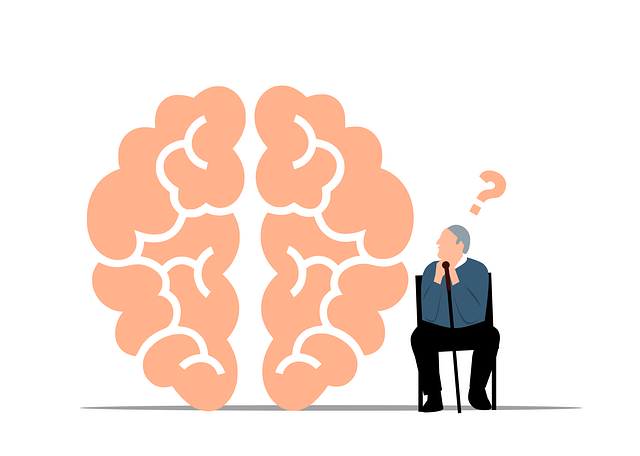Understanding mental health data is vital for effective therapy in bariatric evaluations, encompassing emotional, behavioral, and social factors. By analyzing these aspects, professionals identify trends, assess risks, and design tailored resilience strategies. This comprehensive approach, integrating psychology, nutrition, and medicine, goes beyond physical metrics to address emotional healing processes. Using structured interviews, digital platforms, and mood tracking tools, therapists gain insights into patients' psychological states. Interpreting this data allows for personalized treatment plans targeting self-care and burnout prevention, adapting strategies based on emotional triggers. In the digital era, data-driven insights revolutionize therapy, enabling targeted coaching programs, improved communication, and evidence-based care planning for bariatric patients.
Mental health data analysis is a growing field, crucial for understanding patient progress and tailoring therapy. In this article, we explore key aspects of mental health data interpretation, focusing on bariatric evaluations as a vital component in effective treatment plans. We delve into best practices for data collection methods, from surveys to clinical observations, ensuring accurate insights. By understanding the foundation of mental health data, healthcare professionals can make data-driven decisions, enhancing therapy outcomes and improving patient care, specifically in the context of bariatric evaluations.
- Understanding Mental Health Data: The Foundation of Analysis
- Bariatric Evaluations: A Key Component in Therapy
- Data Collection Methods for Accurate Insights
- Interpreting Results: Unlocking Patient Progress and Challenges
- Enhancing Therapy with Data-Driven Decisions
Understanding Mental Health Data: The Foundation of Analysis

Understanding mental health data is the bedrock upon which effective analysis and interpretation rest. This involves meticulously collecting, organizing, and examining information related to individuals’ psychological well-being, encompassing a wide range of factors such as emotions, behaviors, thought patterns, and social dynamics. In the context of therapy for bariatric evaluations, this process becomes even more critical, as mental health plays a significant role in weight management and overall patient outcomes. By delving into these data, professionals can identify trends, patterns, and correlations that shed light on the complex interplay between physical and mental health.
A robust understanding of data enables mental health professionals to conduct thorough risk assessments for their clients, pinpointing potential triggers or vulnerabilities related to stress management. This proactive approach not only facilitates early intervention but also fosters resilience-building strategies tailored to individual needs. Moreover, it helps in designing targeted interventions and treatment plans, ensuring that care is not just reactive but also preventive, ultimately enhancing the overall effectiveness of therapy for bariatric patients.
Bariatric Evaluations: A Key Component in Therapy

Bariatric evaluations play a pivotal role in therapy for individuals seeking weight loss and related mental health improvements. These comprehensive assessments go beyond physical measurements by delving into the emotional healing processes underlying eating habits and behaviors. By integrating insights from psychology, nutrition, and medicine, therapists can tailor interventions to address both the physical and mental aspects of obesity, fostering lasting change.
The process involves careful analysis of dietary patterns, exercise routines, and psychological factors contributing to weight gain. This data-driven approach enables therapists to design personalized treatment plans that focus on mental wellness. Moreover, public awareness campaigns development around bariatric evaluations can further enhance understanding and accessibility of these crucial services, empowering individuals to take charge of their health and well-being.
Data Collection Methods for Accurate Insights

Obtaining accurate and comprehensive mental health data is paramount for effective analysis and interpretation. Various methods can be employed to collect insights that paint a nuanced picture, especially in specialized areas like bariatric evaluations. One approach involves structured clinical interviews where qualified professionals utilize standardized questionnaires to assess mental well-being. These interviews delve into individuals’ thoughts, emotions, and behaviors, providing a deep understanding of their psychological state.
Additionally, digital platforms and mobile applications have revolutionized data collection by offering accessible tools for tracking mental health metrics. Features like mood diaries, meditation logs, and activity levels can be monitored over time, allowing researchers and therapists to identify patterns and trends. Integrating such technology, particularly in therapy sessions for bariatric evaluations, can facilitate the practice of conflict resolution techniques, mindfulness meditation, and compassion cultivation practices, thereby enriching data related to these therapeutic interventions.
Interpreting Results: Unlocking Patient Progress and Challenges

Interpreting results from mental health data is a pivotal step in understanding patient progress and identifying challenges in bariatric evaluations. By delving into the numbers, therapists can uncover valuable insights into individuals’ emotional journeys. This process involves meticulous analysis of various metrics, such as mood fluctuations, stress levels, and coping mechanisms. For instance, tracking changes in anxiety scores over time through therapy sessions can reveal effective interventions and areas that require further attention.
This data-driven approach facilitates personalized treatment plans, targeting specific aspects of self-care practices and burnout prevention. Emotional intelligence, a key component in mental health assessments, plays a crucial role in interpreting these results. By recognizing patterns and emotional triggers, therapists can adapt their strategies, ensuring patients receive tailored support for their unique needs. This enables individuals to navigate challenges, foster resilience, and make informed decisions regarding their overall well-being, including considerations for therapy for bariatric evaluations.
Enhancing Therapy with Data-Driven Decisions

In today’s digital era, mental health professionals are increasingly leveraging data-driven decisions to enhance therapy for bariatric evaluations and other specialized treatments. By analyzing trends and patterns in patient data, therapists can tailor interventions to address specific needs more effectively. This approach not only improves treatment outcomes but also facilitates the development of tailored mental wellness coaching programs. For instance, identifying common triggers for emotional eating or understanding the relationship between depression prevention strategies and surgical success rates can lead to more personalized care plans.
Furthermore, data analysis enables therapists to refine communication strategies, ensuring that patients from diverse backgrounds feel heard and understood. By utilizing advanced tools and techniques, mental health professionals can navigate complex patient journeys, fostering a supportive environment that encourages open dialogue and fosters positive outcomes. This integration of technology in therapy underscores the evolving landscape of mental wellness care, where evidence-based practices and data analysis work in harmony to revolutionize patient experiences.
Mental health data analysis is a powerful tool that can transform patient care, especially in areas like bariatric evaluations. By understanding and interpreting data, healthcare professionals can make informed decisions, enhance therapy plans, and ultimately improve patient outcomes. Accurate data collection methods and comprehensive analysis provide valuable insights into individual progress and challenges, ensuring tailored and effective treatment for each patient’s unique journey towards better mental well-being. This data-driven approach is a game-changer in the field of bariatric therapy, offering personalized strategies for long-term success.














